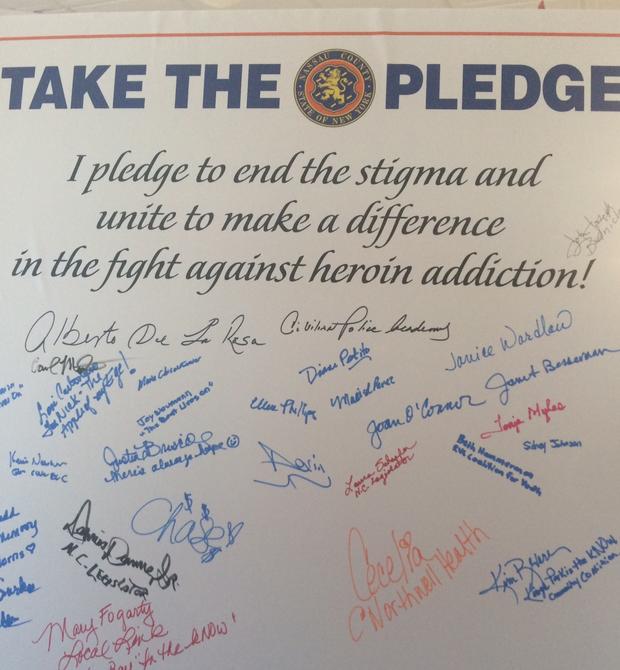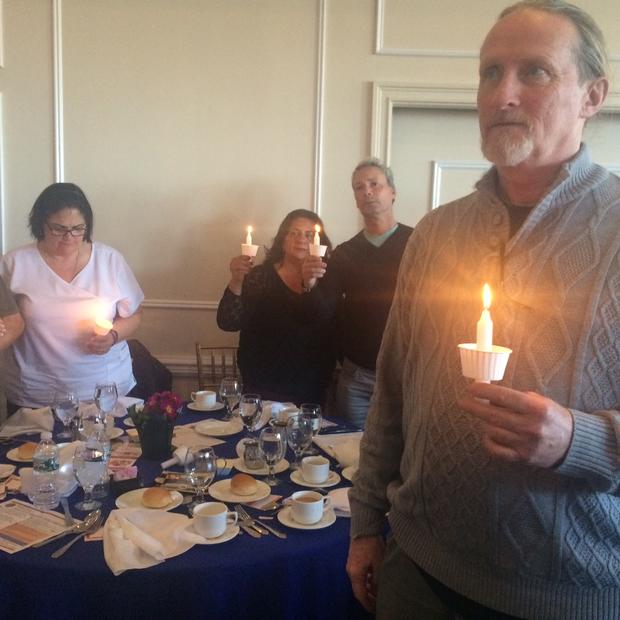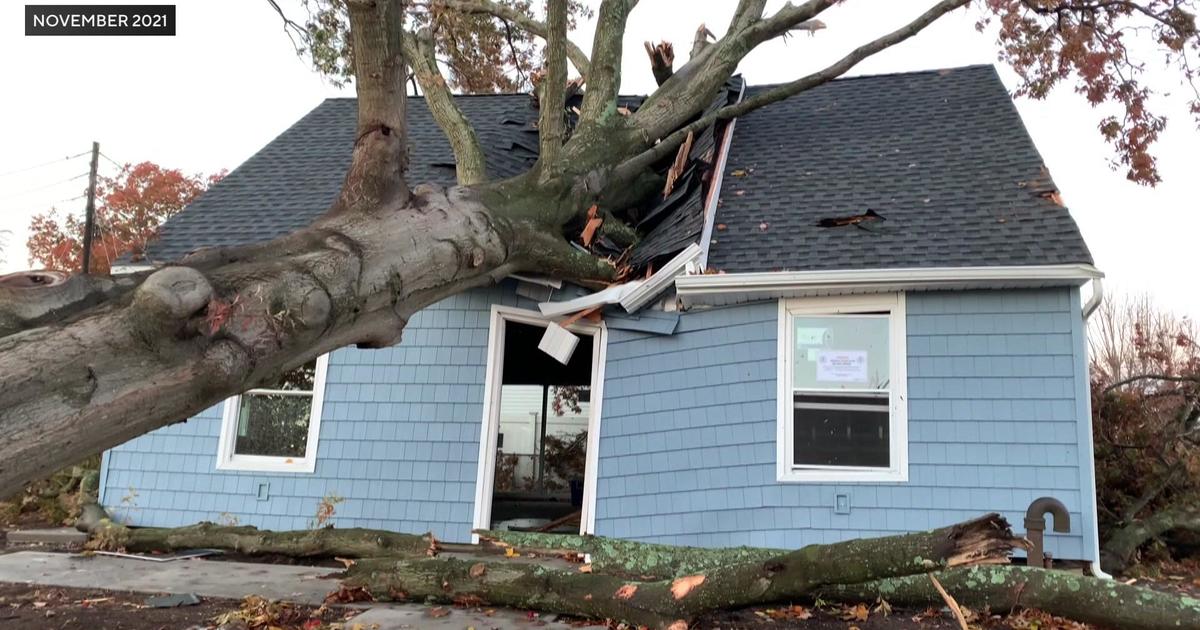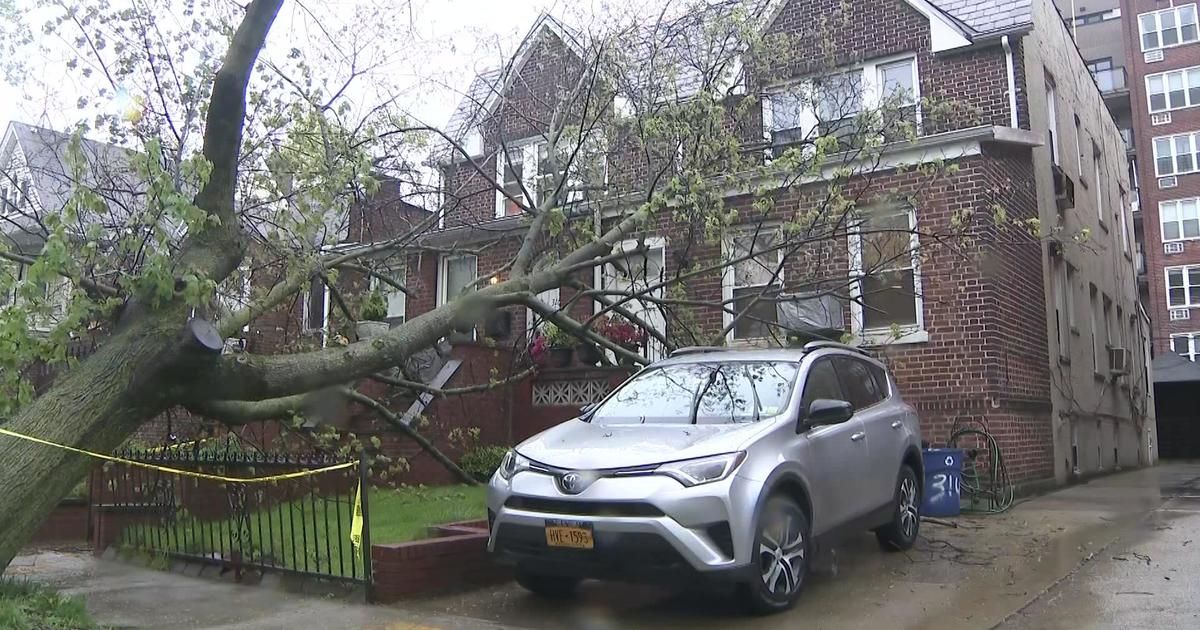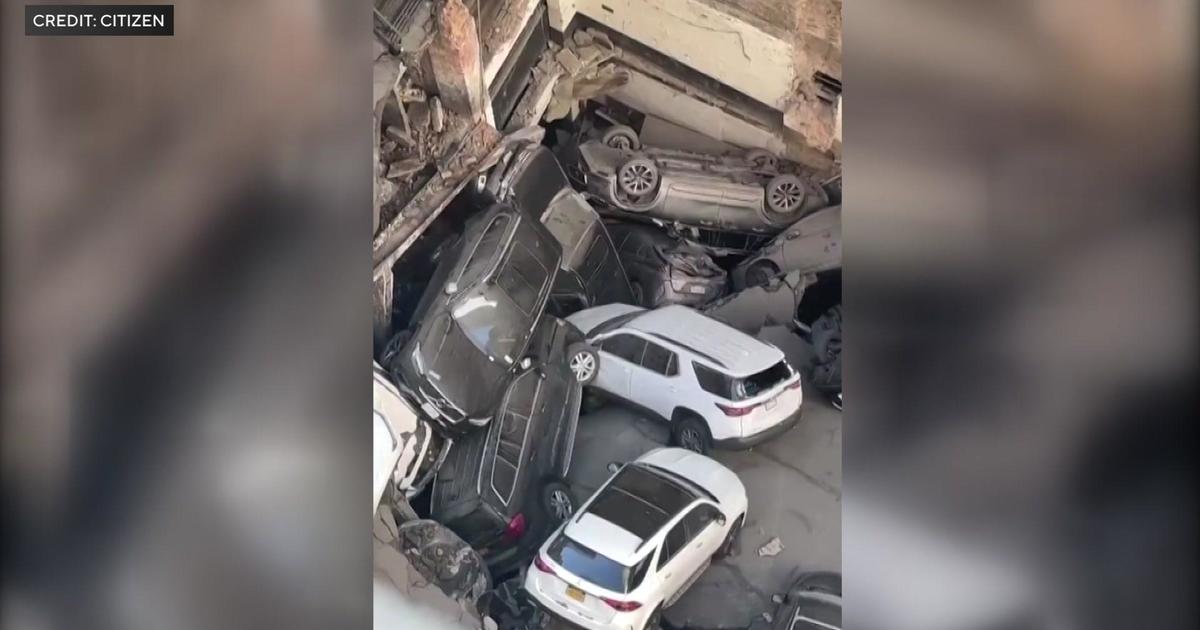Generation 'H': What Hurricane Sandy And The Heroin Crisis Have in Common
By 1010WINS.com Reporter Rebecca Granet
NEW YORK -- When Hurricane Sandy hit the Tri-State area in 2012, whipping winds, devastating flooding, and widespread power outages shook the region to its core. It was a natural disaster that left a path of physical and emotional destruction in its wake. To this day, waterlines remain on many buildings, serving as lasting, visible scars of the floods and the pain businesses had to contend with in order to reopen. Families continue to rebuild their lives and homes. For those who lived in the region, the word "hurricane" will forever be linked to "Sandy," and future storm preparedness will be measured against, and bolstered by, the lessons learned while weathering the storm.
In much the same way, Dr. Jeffrey Reynolds, President of Family & Children's Association, says we are in the midst of another natural disaster: Hurricane Heroin. This storm has taken scores of people by debilitating surprise. It has slowly and methodically taken hold of loved ones and destroyed the lives of those in its path. Reynolds says what the region lacked in preparedness for Hurricane Sandy, it worked to fix post-Sandy, with discussions regarding how to be better equipped for a future storm. He says the transference of that mentality to the heroin epidemic would go a long way.
"The heroin crisis is a natural disaster that is destroying families and claiming lives," he said. "At some point we have to gather together and say how come we weren't better prepared, how come so many people lost their lives, how come there was so much destruction, and what do we do differently to make sure it never happens again."
WEB EXTRA: What Every Parent Should Know
Reynolds says the typical individual he treats for heroin addiction is 18-25 years old. He adds families are significantly impacted by the habits of their loved ones, regardless of age, and recommends that as addicts get help in addressing the disease, their families seek treatment as well.
Reynolds says the heroin crisis first started to become apparent 12 years ago and since then, the problem has become progressively worse. On Long Island, he laments, it's as bad as it's ever been.
"Part of the reason the heroin problem has grown so quickly here on Long Island is because there's this sense that heroin, like other social problems, doesn't happen on Long Island," he said. "They don't happen to our kids. They happen somewhere else, to someone else's kids, and that mindset, in essence, gave heroin a 12-year running head start on our children. We are paying the price for that now and we haven't done a very good job of catching up."
Nancy from Long Beach, Long Island
Nancy says her son began using drugs in junior high school. She believes Daniel, now 25 years old, turned to smoking marijuana as a way to make friends and cope with his ADHD. In high school he began exhibiting some anger issues and at 16, without permission or a license, he took his mother's car. Nancy had him arrested. In the years that followed, Daniel went from living on the streets, to jail, to treatment programs, to living at home for short periods of time. His mother says her son was using opioids over the past eight years and eventually turned to heroin. Today, he lives in a sober house and is four months clean, but that doesn't make it much easier for Nancy. In fact, Dr. Reynolds says the first 120 days of sobriety can pose the greatest danger. That's because many recovering addicts will relapse and immediately return to using the same amount of heroin as they did before rehab. The body can't handle that and as a result, a single relapse at pre-rehab levels can end in death. See how Nancy has learned to cope and navigate through what she calls her own "recovery process."
Drug addiction has become a central topic of discussion in the race for the presidency. Hillary Clinton and Bernie Sanders addressed it during a recent debate. Jeb Bush and Carly Fiorina have spoken publicly about the way in which drug addiction has personally impacted their families.
Last month, in his budget for fiscal year 2017, President Barack Obama proposed $1.1 billion in new funding to tackle the prescription opioid and heroin use crisis. According to The White House website, this "includes $1 billion in new mandatory funding over two years to expand access to treatment for prescription drug abuse and heroin use."
On Feb. 18, nearly 600 people attended the Nassau County Educational Summit and Rally, sponsored by 1010 WINS.
VIDEO EXTRA: Heroin Summit Part 1 | Heroin Summit Part 2
The event brought together health experts, law enforcement, educators, legislators, parents, and recovering addicts to find common ground on solutions to the epidemic. The summit included a candlelight vigil for those who died of heroin and asked participants to sign pledge cards to "unite to make a difference in the fight against heroin addiction."
Nassau County Executive Ed Mangano and Suffolk County Executive Steve Bellone used the event to announce a new joint task force to combat heroin on Long Island. The new task force will trace every overdose back to the source. Officials from both counties said the collaboration could be a turning point. Working together, they said, is always better.
Many doctors and addiction specialists agree that there must be a multi-faceted approach to combatting addiction. Reynolds says on Long Island that includes dedicating more resources to prevention, access to treatment, and support for those in recovery.
"I think our ultimate hope, given the incredible loss of life that's happened here in this region, is that if anything positive is to come out of this, it's making some of those changes," he said. "Fixing some of the preexisting deficiencies, and making sure that we come out of this crisis stronger than ever before, and quite frankly better prepared for the next crisis."
If you, or someone you know is struggling with heroin addiction, please visit the following links:
